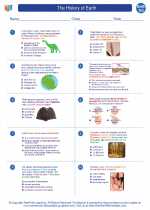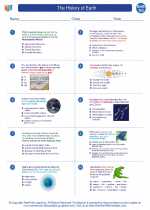Biogas: An Overview
Biogas is a renewable energy source that is produced by the breakdown of organic matter in the absence of oxygen. This process, called anaerobic digestion, occurs naturally in marshes, landfills, and the digestive systems of animals. Biogas is composed primarily of methane (CH4) and carbon dioxide (CO2), with small amounts of other gases such as hydrogen sulfide and traces of ammonia.
How is Biogas Produced?
Biogas is produced through the anaerobic digestion of organic materials such as agricultural waste, food scraps, manure, and sewage. The process involves the following steps:
- Feedstock Preparation: The organic materials are collected and prepared for digestion.
- Digestion: The organic matter is placed in a sealed container, called a digester, where bacteria break it down in the absence of oxygen.
- Gas Collection: The methane and other gases produced during digestion are collected and stored for use as a fuel.
Uses of Biogas
Biogas has a wide range of applications, including:
- Electricity Generation: Biogas can be used to generate electricity through the combustion of methane in a gas turbine or a combustion engine.
- Heating: It can be used as a direct source of heat for cooking, heating water, or space heating.
- Transportation Fuel: Biogas can be processed to remove impurities and used as a renewable fuel for vehicles.
- Industrial Processes: It can be used as a fuel in industrial processes such as kiln firing and steam generation.
Benefits of Biogas
Some of the key benefits of biogas include:
- Renewable Energy Source: Biogas is produced from organic waste, making it a sustainable and environmentally friendly energy source.
- Waste Management: It provides a way to manage and utilize organic waste, reducing the environmental impact of waste disposal.
- Reduction of Greenhouse Gas Emissions: The capture and use of biogas helps to reduce methane emissions, a potent greenhouse gas, from organic waste.
- Local Energy Production: Biogas production can be decentralized, allowing for local energy generation and greater energy security.
Study Guide
To further understand the topic of biogas, consider the following study guide:
- What are the main components of biogas, and how are they produced?
- Describe the process of anaerobic digestion and its role in biogas production.
- Discuss the various uses of biogas in energy generation and other applications.
- Explain the environmental and economic benefits of utilizing biogas as a renewable energy source.
- Research and present a case study or real-world example of a biogas production facility and its impact on the local community.
By exploring these questions and topics, you can gain a comprehensive understanding of biogas and its significance as a renewable energy source.
Good luck with your studies!
.◂Earth Science Worksheets and Study Guides High School. The History of Earth

 Worksheet/Answer key
Worksheet/Answer key
 Worksheet/Answer key
Worksheet/Answer key
